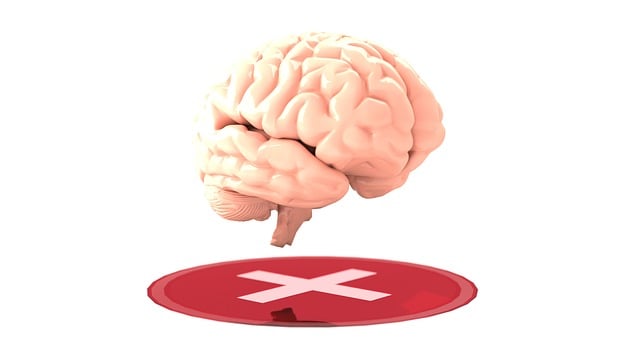Mental health professionals treating young adult women face unique challenges like complex identity and body image issues driven by social pressures, requiring advanced communication skills to create safe spaces. Burnout is a risk, highlighting the need for self-care and support. Key strategies include comprehensive risk assessment, social skills training, and crisis intervention guidance to build resilience, address academic pressures, identity formation, relationship dynamics, and gender-specific challenges, empowering clients with proactive mental health management. Prioritizing risk management in clinical settings enhances patient safety through intake forms, self-care practices, emotional intelligence training, supervision, and peer support groups, leveraging case studies for tailored interventions.
Mental health professionals dedicated to supporting young adult women face unique challenges and risks. This article explores these specific dangers, emphasizing the crucial role of comprehensive risk assessment in therapy sessions. We provide a step-by-step guide for practitioners to identify potential hazards, followed by strategies to mitigate and manage risks in clinical settings. Case studies from youth mental health care highlight real-world scenarios, offering valuable insights for navigating these complex issues effectively, with a focus on therapy tailored to young adult women’s specific needs.
- Understanding the Unique Risks Faced by Mental Health Professionals Working with Young Adult Women
- The Importance of Comprehensive Risk Assessment in Therapy Sessions
- Identifying Potential Hazards: A Step-by-Step Guide for Practitioners
- Strategies to Mitigate and Manage Risks in Clinical Settings
- Case Studies: Learning from Real-World Scenarios in Youth Mental Health Care
Understanding the Unique Risks Faced by Mental Health Professionals Working with Young Adult Women

Mental health professionals who specialize in working with young adult women encounter a unique set of risks and challenges. This demographic often presents complex issues, including but not limited to, identity crises, body image concerns, and social pressures that can impact their mental well-being. The dynamic nature of these relationships requires therapists to possess advanced communication skills, as they must create a safe and non-judgmental space while navigating sensitive topics.
Additionally, the demanding nature of therapy for young adults’ women’s issues can lead to burnout if not properly managed. Professionals must be mindful of their own emotional healing processes and seek appropriate support and supervision. Implementing social skills training and crisis intervention guidance is essential to enhance their resilience and ability to handle the diverse needs of this client population effectively.
The Importance of Comprehensive Risk Assessment in Therapy Sessions

In therapy sessions, a comprehensive risk assessment is paramount, especially when catering to young adults and women facing diverse mental health challenges. This process involves meticulously examining various factors that could impact a client’s well-being, enabling therapists to deliver tailored support. By delving into personal histories, current stressors, and potential triggers, professionals can identify risks associated with issues like depression, anxiety, or trauma. Such assessments are crucial for preventing escalating problems, ensuring safety, and guiding effective treatment plans.
For young adults and women, risk assessment should encompass unique concerns such as academic pressures, identity formation, relationship dynamics, and gender-specific challenges. Incorporating discussions on mood management techniques, self-care routine development, and burnout prevention strategies can empower clients to take proactive measures for better mental health. Therapists play a vital role in educating and supporting individuals through these assessments, ultimately fostering a safer and more supportive therapeutic environment.
Identifying Potential Hazards: A Step-by-Step Guide for Practitioners

Identifying Potential Hazards is a crucial step for mental health professionals to ensure safe and effective practice, especially when working with specific populations like young adults and women. Here’s a practical guide:
1. Understanding Client Populations: Begin by considering the unique challenges faced by young adults and women. This may include issues related to identity formation, gender norms, self-esteem improvement, and life transitions. For instance, young adults navigating their first jobs or relationships might present distinct concerns compared to established professionals or single mothers.
2. Assessing Risk Factors: Evaluate individual client factors such as past trauma, substance abuse history, or prior suicide attempts, which can significantly impact their mental health. Additionally, consider environmental hazards like unsafe living conditions or exposure to violence. Professionals should be attuned to clients’ cultural backgrounds and personal beliefs, ensuring culturally competent care that respects diverse perspectives.
3. Environmental Scrutiny: The physical environment plays a role in client well-being. For young adults, academic or work pressures might contribute to stress. Women may face unique risks in certain social settings due to gender-based biases or harassment. Professionals should be aware of these potential triggers and develop strategies to mitigate their impact.
4. Professional Development: Regularly engage in healthcare provider cultural competency training to enhance your understanding of diverse client groups. This equips you with the skills to create safe, inclusive spaces for therapy. Moreover, fostering inner strength development through self-care practices enables professionals to better support clients’ journeys towards healing and growth.
Strategies to Mitigate and Manage Risks in Clinical Settings

In clinical settings, mitigating and managing risks is paramount for mental health professionals to create a safe and supportive environment, especially when catering to specific demographics like young adults and women facing diverse issues. Strategies to enhance risk assessment include comprehensive patient intake forms that delve into personal history, current challenges, and past therapy experiences. This data allows professionals to anticipate potential triggers and tailor interventions accordingly.
Additionally, integrating self-care practices for both therapists and clients is crucial. Encouraging emotional intelligence among staff enables them to recognize and manage their emotions effectively, thereby fostering a more stable therapeutic environment. Regular supervision sessions and peer support groups further mitigate risks by providing platforms for professionals to discuss complex cases, learn from one another, and share best practices related to self-esteem improvement and other relevant topics.
Case Studies: Learning from Real-World Scenarios in Youth Mental Health Care

Case studies play a pivotal role in risk assessment for mental health professionals, offering valuable insights into real-world scenarios that can shape best practices. By examining specific examples from youth mental health care, practitioners can learn from both successes and challenges encountered by their peers. For instance, studying successful therapy interventions for young adults dealing with women’s issues can reveal effective communication strategies, fostering positive thinking and enhancing overall mental wellness. These real-life narratives serve as a rich source of knowledge, guiding professionals in navigating complex situations and making informed decisions that prioritize client safety and well-being.
Furthermore, delving into case studies allows for the identification of potential risk factors unique to this demographic. Young adults facing women’s health issues may present distinct challenges related to identity formation, social pressures, and cultural norms. Case study analysis enables mental health professionals to develop tailored strategies that address these specific concerns. Leveraging communication techniques from successful case studies can improve therapy outcomes, ensuring that young adults receive the specialized care they need while fostering a supportive environment conducive to their mental wellness.
Mental health professionals who specialize in therapy for young adult women’s issues must be adept at navigating a unique set of risks. By implementing comprehensive risk assessment practices, practitioners can effectively identify potential hazards and develop strategies to mitigate them. This proactive approach ensures the safety of both clients and therapists, fostering a supportive clinical environment. Through studying real-world case studies, professionals can further enhance their understanding of risk management in youth mental health care, ultimately improving outcomes for young adult women facing various challenges.














